
Rank 1 Google: How to reach the top

.webp)
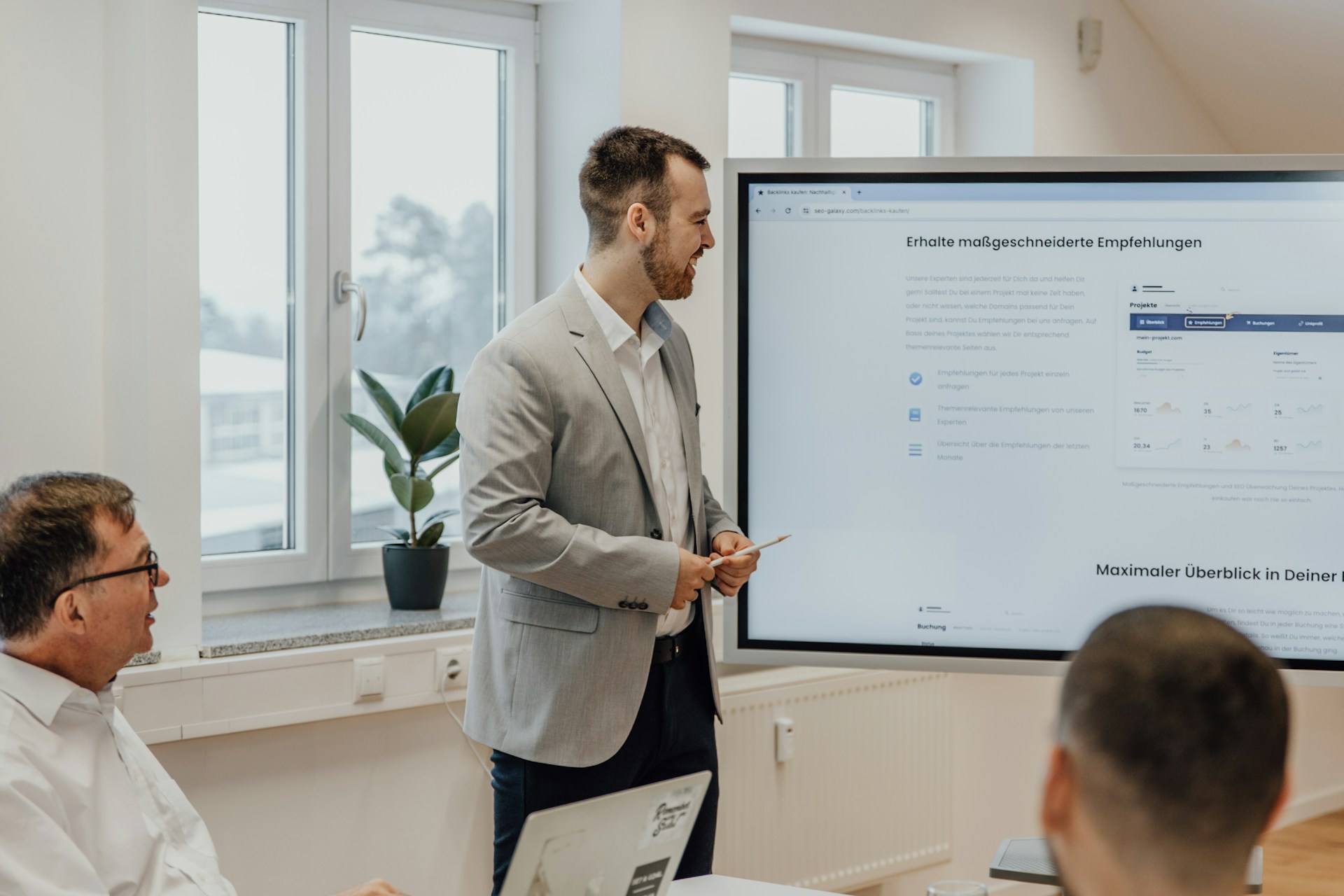
The most important facts in a nutshell






.webp)

Then now is the right time! Together we will turn your website into your strongest sales channel - with a clear strategy and measurable growth.
Get free adviceFirst Things First: Understanding How Google Search Works
Before you can optimize your website for top rankings, you need to understand how Google actually works. The popular search engine uses so-called crawlers to continuously search the Internet. These small programs visit pages, record their content, structures and technical data and save them in the Google index. You can think of this index as a huge archive that contains all the information that Google has collected.
When a user makes a search query, Google Analyses in Fractions of a Second Which Pages Best Match the Entered Search Term. Hundreds of factors, the famous ranking factors, are evaluated for this purpose. Technical elements such as loading speed, IP address, mobile friendliness and security play a role, but also content criteria such as keyword relevance, content quality and user behavior.
Google always strives to provide the best answer to each search. Your site must therefore not only be well structured, but also maximally relevant to the respective search intent. You need to understand what users really want when they type that term. Are they looking for information? Do they want to buy something? Or are you looking for a local restaurant near you? The better you understand the intent and cover it with your content, the greater the chance that you'll rank 1 on Google.
Search engine optimization tips: Get your content to number 1 on Google
If you want your website to appear at the top of Google, you need more than just good will: you need a clear strategy. In the following section, we will therefore give you proven tips and concrete measures to optimize your content specifically for the top of the search results:
Keyword research & analysis: Your foundation for page 1
In order to rank high up, you must of course first know which keywords you want to rank for. And by that, of course, we don't just mean just anyone, but exactly the ones that your target group is really looking for. For you as a website operator, they are the direct connection to your potential customers. If you find out what they're looking for, you can deliver exactly that and thus gain visibility. But which terms are worthwhile and which content should be revised and supplemented with further keywords?
You can use numerous tools for keyword research and analysis, including Ubersuggest, Ahrefs, Sistrix, or SEMrush. But free tools such as AnswerThePublic, Google Keyword Planner or Google Trends also help you get a feel for search queries and their volume. However, it is important that you not only focus on search volume, but on keyword relevance. So it's better to use a term with less search volume that fits your offer perfectly than a much searched term that doesn't lead to the content of your website.
Example: What should you do as a shop for handmade leather shoes?
A good example: An online shop for handmade leather shoes shouldn't simply optimize for “buying shoes.” This keyword is extremely competitive and unspecific. Terms such as “buy handmade leather shoes”, “leather shoes from Italy” or “high-quality leather shoes for men” would be better. These keywords are so-called long-tail keywords.
These consist of several words and are often less contested but very targeted. For example, if someone types in “buy vegan leather shoes size 44,” it's clear what they want and if you offer exactly this site, you have a good chance of being placed in the top spot.
OnPage Optimization: Content, Technology & Structure
OnPage optimization is one of the most powerful levers on the way to number 1 on Google, because this is where you ensure how search engine friendly your website really is. It's not just about integrating keywords, it's about structure, technology, user guidance and content. Let's therefore start with the most important point: content with added value. Your content should inform, but above all, inspire.
Ask yourself: What is the user looking for? And how can I offer him exactly that and more? Texts with real depth, clear structures, examples, graphics, tables, videos — all of this makes for a better user experience and stronger Google rankings.
The key points and goals of technical SEO
These include:
- Fast load times (e.g. through image compression, caching, lazy load)
- Mobile optimization (responsive design is mandatory!)
- Crawlability: Your pages must be easily accessible to Google
- Canonical tags to avoid duplicate content
- Structured Data for Better Presentation in Search Results
Especially for large websites or online shops, you should pay particular attention to crawlability. For example, if you use a wide variety of products, you should definitely work with canonical tags to make efficient use of your crawling budget. Here, tools such as Screaming Frog or the Google Search Console can help uncover vulnerabilities. You should also pay attention to the page structure. Clear, logical menus, meaningful categories and a comprehensible URL structure help users and Google alike, which in turn results in better rankings.
Technical SEO: The Technical Part of Search Engine Optimization
Many underestimate it, but technical SEO is the foundation of all your SEO efforts. After all, it's no use having the best content if Google can't read or understand it, or if your page loads so slowly that users jump off. Let's start here with the most obvious: page load speed. Statistics show that many users drop out after just a load time of over 3 seconds.
That is why PageSpeed optimization is mandatory. Use modern technologies such as WebP for images, lazy load, minification of JavaScript and CSS, and caching mechanisms to speed up your site. Another must is the focus on mobile-first. For years, Google has been rating websites first on the basis of their mobile presentation. So if your online presence doesn't work on your smartphone, you'll never reach a top position.
The structure of your website is the be-all and end-all these days
Another important element is the structure of your websites. Use clean HTML headers (H1—H4), clear internal links, unique URLs, and a logical menu structure. This not only allows the user to find their way around, but Google also better understands the structure of your content. You should also pay attention to your robots.txt and the meta robots tags and keep an eye on whether your sitemap is always up to date. This allows you to control which pages should and should not be indexed, which is particularly important for large websites with many sub-pages.
And don't forget to also talk about cookies, privacy and data processing. Have you set all links correctly? Does the banner appear on every device? Is your privacy policy up to date? Data protection requirements are constantly increasing and Google prefers websites that offer a transparent privacy policy and comprehensible settings.
Off-page optimization: building authority through backlinks
Even if a lot is happening on your site: without OffPage optimization, you won't make it to number 1 on Google. Why Because Google wants to know whether you're really relevant, and that's what your backlinks show, among other things. A backlink is therefore nothing more than a recommendation from another site. So when a high-quality, topic-relevant website links to your site, Google regards this as a sign of trust. The more of these recommendations you have, and the better their quality, the higher your ranking.
But be careful: Mass instead of class is a mistake here. Therefore, avoid dubious link farms, low-quality forum links, or purchased links from third parties. Google is increasingly recognizing such manipulations and punishing them. Instead, focus on real added value and organic link building. You can achieve this, among other things, by:
- Guest contributions on strong specialist portals
- Collaborations with influencers or industry experts
- Mentions in media (press work!)
- Creating linkable content (e.g. studies, infographics, tools, checklists)
Local directories, event sites, online tools or industry platforms are also good sources for high-quality links. If you are a local company or offer a service locally, you should also rely on Google My Business, Regional Directories and Business Directories, as these measures can positively influence your local visibility. And don't forget: a professional backlink audit should be part of this. This is the only way you can identify toxic links at an early stage and have them specifically invalidated, for example using Google's disavow tool.
Content is king: Content that really performs on Google
Do you want to be number 1 on Google? That's when you need content that's better than any other in search results. Google prefers content that dives deep into a topic, offers real added value and fits the search intent perfectly. However, it is not only what you say that counts, but also how you say it, for example in terms of structure, readability, relevance.
For your content to be relevant, you should answer a specific question, solve a problem, or provide a direct benefit. And in the best possible way, in a way that is easy for the reader to understand, pleasant to read and ideally also entertaining. Subheadings, bullet points, images and videos that break up and visually support your text are suitable for this purpose.
Content formats that prove to be particularly effective in practice
- Advice articles (how-to-guides)
- Instructions & checklists
- Case studies & case studies
- FAQ areas
- Comparative article
- Storytelling content with a genuine emotional connection
A practical example: If you run restaurants, not only write a general “about us” page, but also create an article such as: “10 things to pay attention to when visiting a sushi restaurant for the first time” and show off your expertise with stories from your everyday life. Google recognizes how good your content is by evaluating user behavior. If readers stick around for a long time, don't immediately jump off and interact with your content, Google sees this as a positive signal.
Structured Data & User Experience (UX): The Underrated Boost
Structured data is the secret ace up the sleeve of many successful websites. They help Google understand what your site is about and allow you to display advanced results, so-called “rich snippets.” For example, these display star ratings, FAQs, event data or even recipes directly in the search results.
This increases visibility and makes your post more noticeable. But it is not only structured data that improves your position, but also the user experience. This is about how pleasant it is to use your site. Does the visitor find their way around? Will he find what he is looking for quickly? Does everything load smoothly? Does the menu work on mobile devices?
Our tips for a better UX:
- Use clear, intuitive navigation
- Avoid popups that obscure content
- Make sure it's easy to read: enough contrast, large font, short paragraphs
- Integrate CTAs (call-to-actions) into meaningful places
- Respond quickly to clicks and interactions
And one more thing: Make it easy for visitors to get in touch with you. Whether through a contact form, a live chat or a clearly visible telephone number: the easier you are to reach, the better. Accessibility is also playing an increasingly important role at Google, as more and more people use the Internet with tools such as screen readers. If your site is barrier-free, it will therefore be rated higher by Google. Plus: You'll also reach a larger target group.
Google My Business & Local Visibility: The Key for Regional Businesses
If you run a local business, be it a restaurant or a service company, then your Google My Business Profile is one of the most important ranking factors. This is primarily due to the fact that Google often displays the so-called local map with the three best results for local searches such as “hairdresser in Berlin” or “Italian restaurant Cologne.” And that's exactly where you want to go! To land there, you need a complete and well-maintained Google My Business Profile. This includes:
- Company name, address, phone number
- Opening hours (also save holidays and vacations!)
- Linking to your website
- Description of your offer
- Categories and sub-categories
- Photos and videos (current and authentic!)
- Customer reviews, preferably with answers from you
Current content dominates local maps
The better and more up-to-date your profile is, the better your chances of a good ranking on the local map. According to our experience, customer reviews have a particularly strong effect here. They create trust and influence the decisions of many users, which leads to website clicks and thus sends positive signals to Google. In addition to Google My Business, other local platforms and directories such as Yelp, Yellow Pages, TripAdvisor or special industry sites are worthwhile for local companies.
However, always make sure that all entries are consistent, i.e. use the same address, telephone number and spelling. Otherwise, you may be penalized by Google because some of your content seems out of date, such as when Google finds 2 different street names or phone numbers.
Monitoring & Analysis: Measure, Understand, Optimize
Success without control is just a coincidence. That is why every professional SEO strategy includes detailed monitoring and SEO reporting. This is the only way you can really know how your measures are working and have the opportunity to make targeted adjustments to speed up your way to rank 1 on Google.
For a detailed insight, we recommend SEO tools such as Google Search Console, Google Analytics or Matomo. There you can regularly analyze the status of your website. Which sites bring in the most traffic? Which keywords perform well? Where do users cancel? This data is worth its weight in gold. Pay particular attention to the following key figures (KPIs):
- Click-through rate (CTR) of your search results
- Bounce rate
- Length of stay
- Load time (Core Web Vitals)
- Ranking history for your most important keywords
The most important tools for analyzing your SEO performance
And off-page optimizations can also be measured, for example with Ahrefs or Sistrix. How is your link profile developing? Which pages link to you? Are there toxic links that you should invalidate? However, the most important thing is always: As soon as you notice changes in your ranking or traffic, you should not panic, but act systematically and thoughtfully. Analyze exactly what has changed.
Causes of potential ranking losses
Is only a specific page affected or the entire website? After all, a sudden loss of ranking can have many causes: From technical errors such as incorrect redirects, slow loading times or server problems, to quality deficiencies in your content, to a major Google update that rates your site differently than before.
But external factors such as lost backlinks or stronger competition can also play a role. Therefore, don't react prematurely, but get a clear picture, draw the right conclusions and take targeted measures. Only those who analyse and act strategically here can absorb ranking losses and come out stronger in the long term.
SEO Trends & Future Outlook: Where is Search Engine Optimization Developing?
SEO is a dynamic playing field that is constantly evolving. What works today may be out of date tomorrow. That is why it is so important to monitor current developments and react strategically to them. One of the biggest game changers in recent years is primarily the use of artificial intelligence. Google is increasingly relying on AI-based algorithms such as RankBrain and BERT, which semantically understand search queries and do not just respond to keywords. For website operators, this means that content must be thematically profound, meaningfully structured and precisely tailored to the search intent, meaning that keyword stuffing is now finally a thing of the past.
Voice search is getting stronger thanks to AI's
Voice search is also another major trend. More and more people are using voice assistants such as Siri, Alexa or Google Assistant to ask questions. As a result, search queries become longer, more dialogue-oriented and more local. Websites should therefore increasingly rely on so-called long-tail keywords and natural language.
Visual search requires effort thanks to Google Lense
But visual search, i.e. image search via camera or screenshots, is also becoming increasingly relevant, especially in e-commerce. Google Lens & Co. visually recognize products and are already delivering suitable results today. You should therefore already pay more attention to optimized images, alt texts and structured data.
Zero Click Searches, Featured Snippets, and AI Overviews
There is also the trend towards zero-click searches. This means that users receive an answer directly on the Google results page without having to click on the website. Featured Snippets, Knowledge Panels, and Local Maps are examples of this. If you want to be visible here, you have to use structured data, incorporate FAQs and tailor content specifically to these types of search experiences.
E-E-A-T and author experience as an authority factor
And last but not least, the term E-E-A-T is also becoming increasingly important: Experience, Expertise, Authoritativeness and Trust. Google Wants to Know: Does the Author Really Have Experience? Is he an expert? Is the website trustworthy? You should therefore always enrich content with clear author information, references, external links and current sources.
How much does 1st place on Google really cost?
We hear this question regularly at SEO Galaxy: “What does it cost to be number 1 on Google? “However, the answer is complex because there is no fixed price. Anyone who says otherwise is unfortunately dubious in most cases, as hundreds of factors play a role in the Google ranking and it can be either just minor optimizations or entire relaunches. What you have to pay therefore usually depends on where you currently stand. This includes, among other things
- How strong the competition is
- How competitive are your keywords
- How big and in what condition your website is
- How good, up to date and extensive your current content is
- How many technical and off-page optimizations are necessary and
- How much you can contribute yourself.
What are the monthly costs of SEO measures?
The monthly costs for the professional SEO measures based on this are usually between 800 and 5,000 euros for reputable agencies. Sounds a lot? It may be, but if this investment makes you permanently visible in search results, you will often pay significantly less in the long term than with paid advertising. So don't think in terms of costs, but in terms of benefits. What does a place on page 1 of Google Get You?
More customers, more sales, more trust. And above all: more control over your digital sales. If you generate ten times more orders as a result of the contracted services, for example via your online shop, because you are in first place for your most important keyword, then the investment often pays off within a few months.
SEO with a system: Why an agency is often the better choice
Can you do SEO yourself? In theory, yes. In practice, however, it is a highly complex field with many individual parts: technology, content, strategy, off-page optimization, analysis, tools, data, continuous updates. It therefore requires not only time, but above all expertise. An experienced SEO agency offers you exactly this technical know-how, as well as strategic understanding, data analysis expertise and often years of practical experience. So if you hire us, SEO Galaxy, for example, you will benefit from several advantages:
- Time savings: You can focus on your core business
- Technical depth: Professionals identify problems faster
- Holistic Strategy: Everything from a single source — OnPage, OffPage, Content
- Access to premium tools and data sources
- Continuous monitoring and optimization
- Personal contact and individual support
But above all: We have already successfully supported countless projects across all industries and platforms. From local craft businesses to internationally active e-commerce companies. We therefore know exactly which measures are really effective and which are not.
Conclusion on first place on Google: The path to digital visibility and sustainable success is feasible
We know it ourselves: Getting to rank 1 on Google is no piece of cake. It requires strategic planning, continuous optimization, persistence and, above all, a deep understanding of the mechanisms behind search intentions, technical performance and high-quality content. However, anyone who makes it to this top position not only enjoys maximum visibility, but is also automatically perceived as trustworthy and relevant.
First place in Google search results signals to your target audience: “This is the best answer to your question,” even before they've even entered your website. But without a structured approach, success will not be achieved. It's not enough to include a few keywords or simply write “good content.” You need a well-thought-out, holistic SEO strategy.
First of all, this includes a comprehensive website audit. Put your site through its paces: technology, content and loading speed. What is already working, where are there weaknesses? Only when you know your current situation can you optimize in a targeted man. This is followed by the next step: a well-founded keyword strategy.
Find out which terms your target group really uses, not just through good feeling, but through data-based analyses. Then it's time for the content: revising existing content or creating new pages that not only hold a candle to the best competitors, but surpass them. Deeper, clearer, more relevant: That is the claim.
From the technical side: Optimize load times, ensure that your mobile site works flawlessly, implement structured data and ensure the highest security standards. These are all strong signals for Google and real added value for your users! And finally: Measure your success, analyze your results, optimize continuously. SEO is not a one-time effort, but an ongoing process. If you want to be at the Forefront in the long term, you have to stick with it, react flexibly and adjust regularly.
Do you want to get started and not go your way to top rankings alone? Then contact us now. Together, we'll reach page 1 of Google search results!
FAQ: Common questions about rank 1 on Google
Below you'll find answers to the most common questions about rank 1 on Google:
How long does it take to get to number 1 on Google with SEO?
How long it takes for your content to rank first on search engines such as Google depends heavily on competition, the starting position of your website and the measures taken. You can usually expect the first visible results after 3—6 months, but for top rankings, it can also take 6—12 months or longer.
Can I rank 1st on Google without backlinks?
In very poorly competitive niches, it is possible to rank 1 on Google even without backlinks, but high-quality backlinks are crucial in most cases. They show Google that your site is trustworthy and relevant.
How much does good SEO cost to get to rank 1 on Google?
Professional SEO usually ranges between 800 and 5,000 euros per month, depending on the scope and objectives. However, this is an investment that pays off in the long term through visibility and increased sales.
Do I have to implement all SEO measures at the same time to rank on page 1?
No, you don't have to implement all SEO measures at the same time. It is even better to be structured and prioritized. Start with the biggest levers, such as technical optimization and keyword strategy, and then work your way forward.
Is SEO better than paid advertising?
SEO delivers sustainable results compared to ads. While paid advertising only works as long as you pay for it, good content with top rankings remains visible for years and continuously brings you free traffic.
If you're in 1st place on Google, you've reached absolute pole position. Especially because Google is now the place where relatively the most attention, the highest trust and the largest traffic (even in AI search times) are generated. On average, the page or article in rank 1 receives over 30% of all clicks on average. This means that almost a third of people who enter a specific search term click on the first search result, sometimes not even on the second, certainly not on the fifth.
The click rate drops dramatically with every additional position. On page 2, just 1— 2% of searchers get lost. So anyone who is not on page 1 is not visible in fact. But it's about more than just visibility. Being on the first page also creates trust. Users associate a good ranking with quality and relevance. So when your website is at the top, the user subconsciously believes: “That must be good.” No other online marketing measure can build up this level of trust.
But how do you get to number 1 on Google? In the following sections, we share with you our experience and valuable tips from years of SEO work as a successful SEO agency and take a look at the future of SEO in connection with voice search, use of AI, etc.
Are you ready for rocket growth?
Arrange your personal consultation now and find out how we can help you get ahead in search engine marketing. Whether you run a small company or are responsible for a large corporation - we will find the right solution for you.


.svg)
.webp)
.webp)

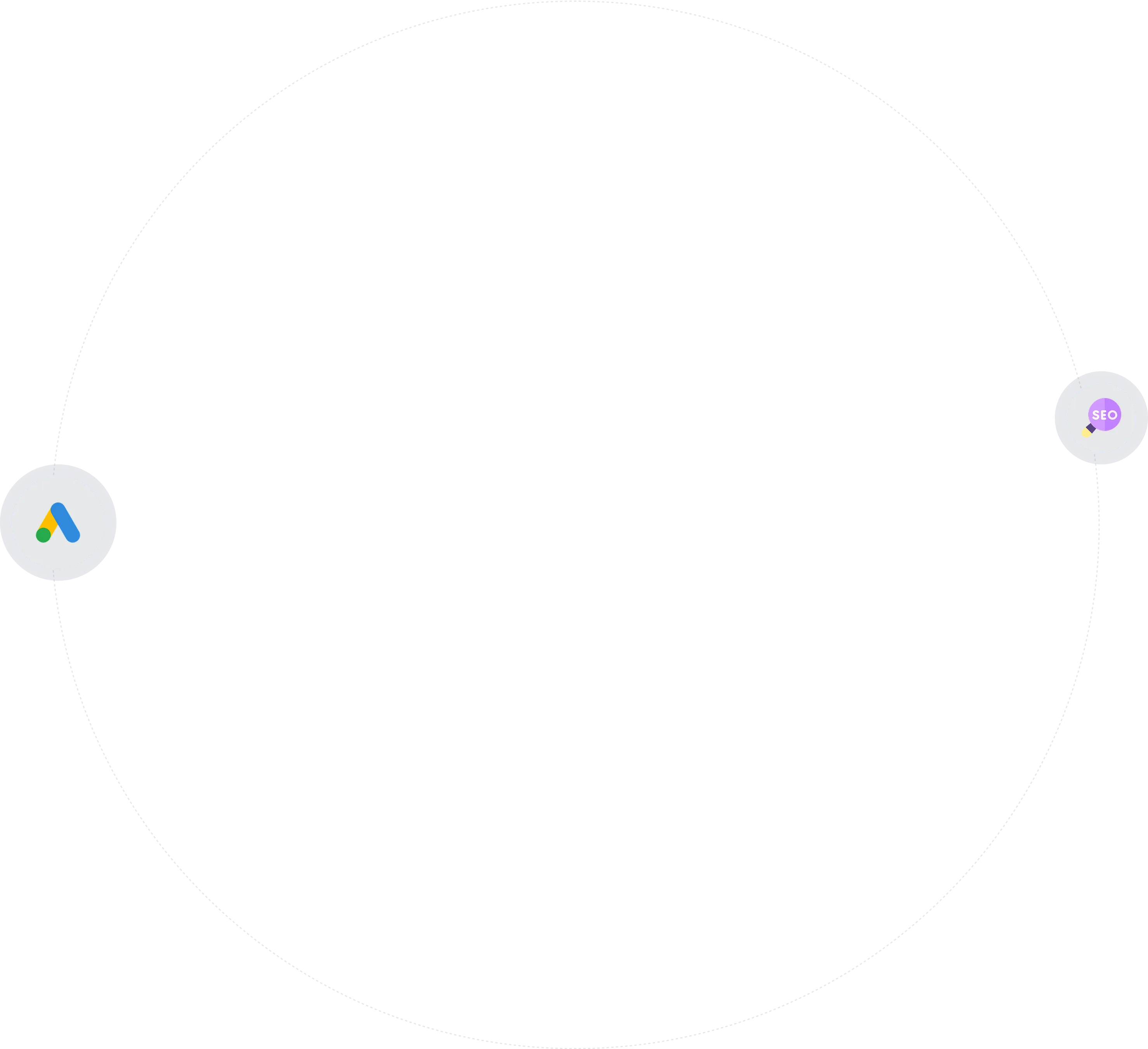
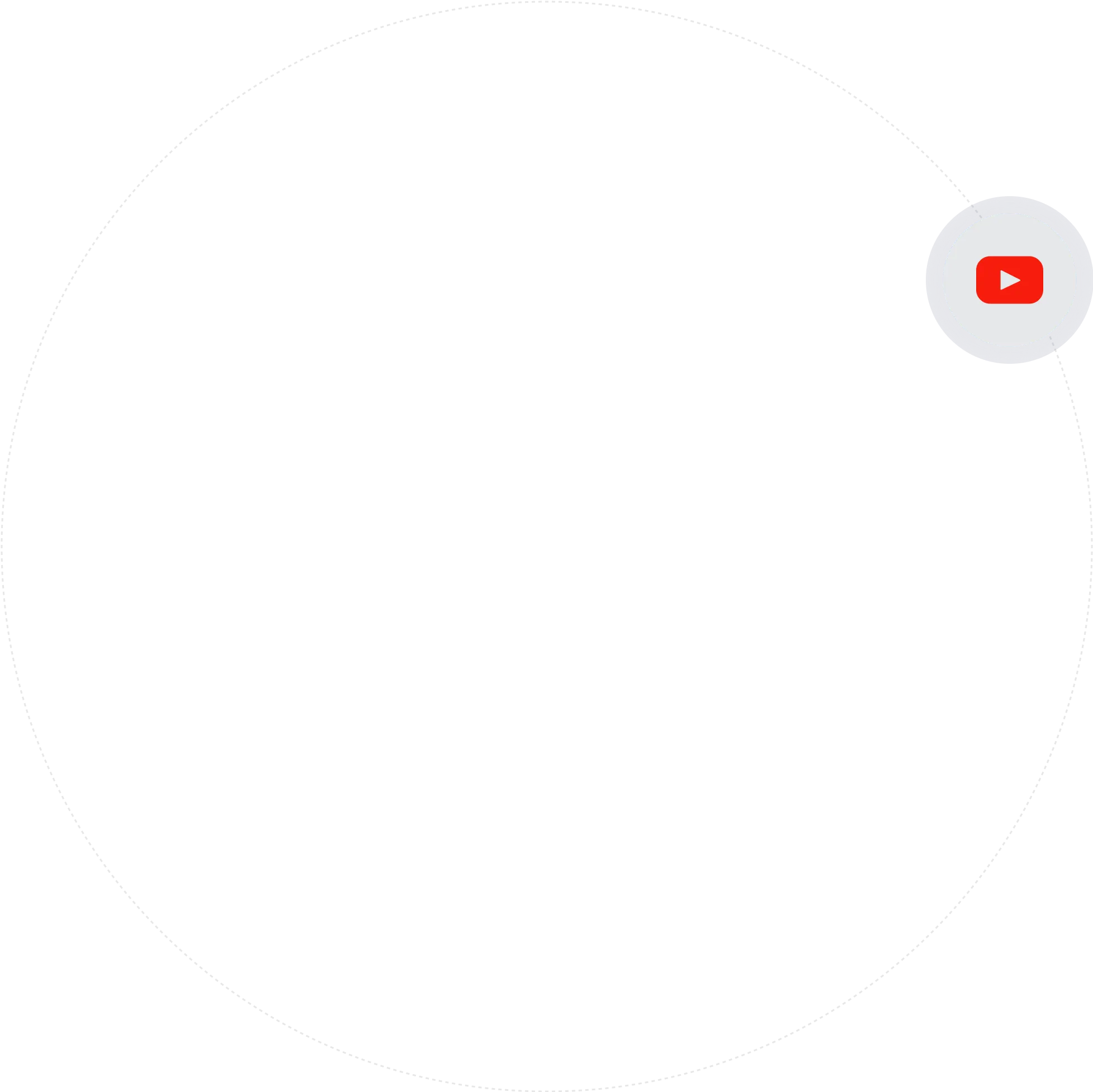
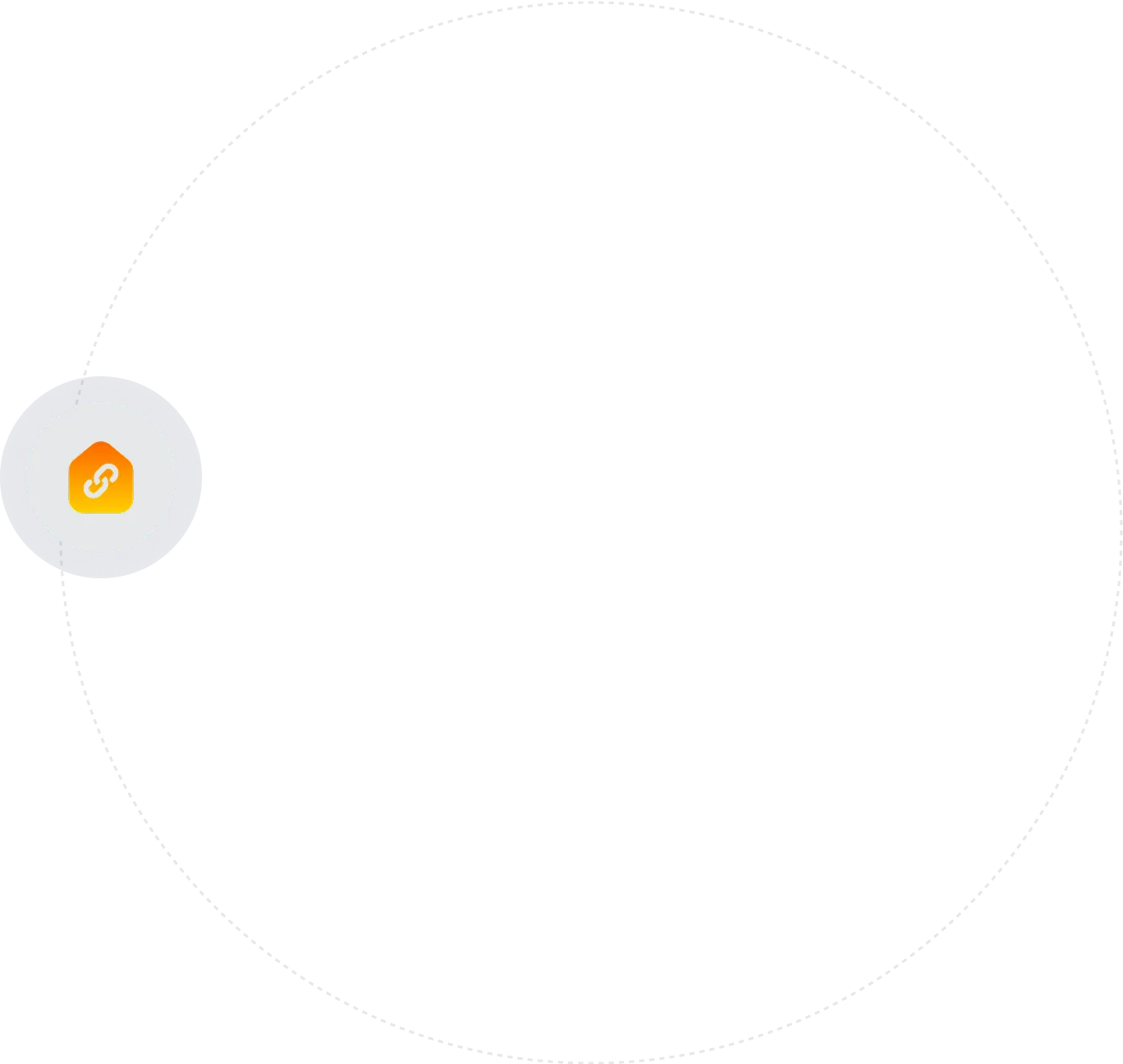
.webp)
.jpg)


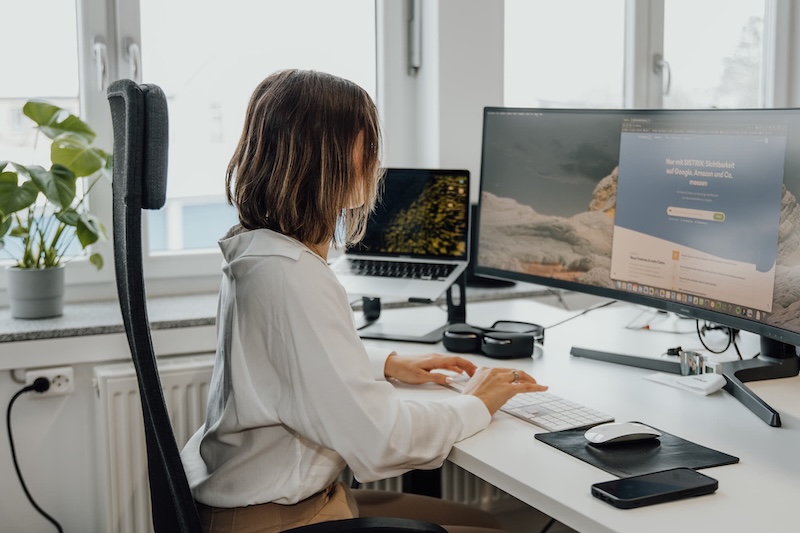
.webp)








